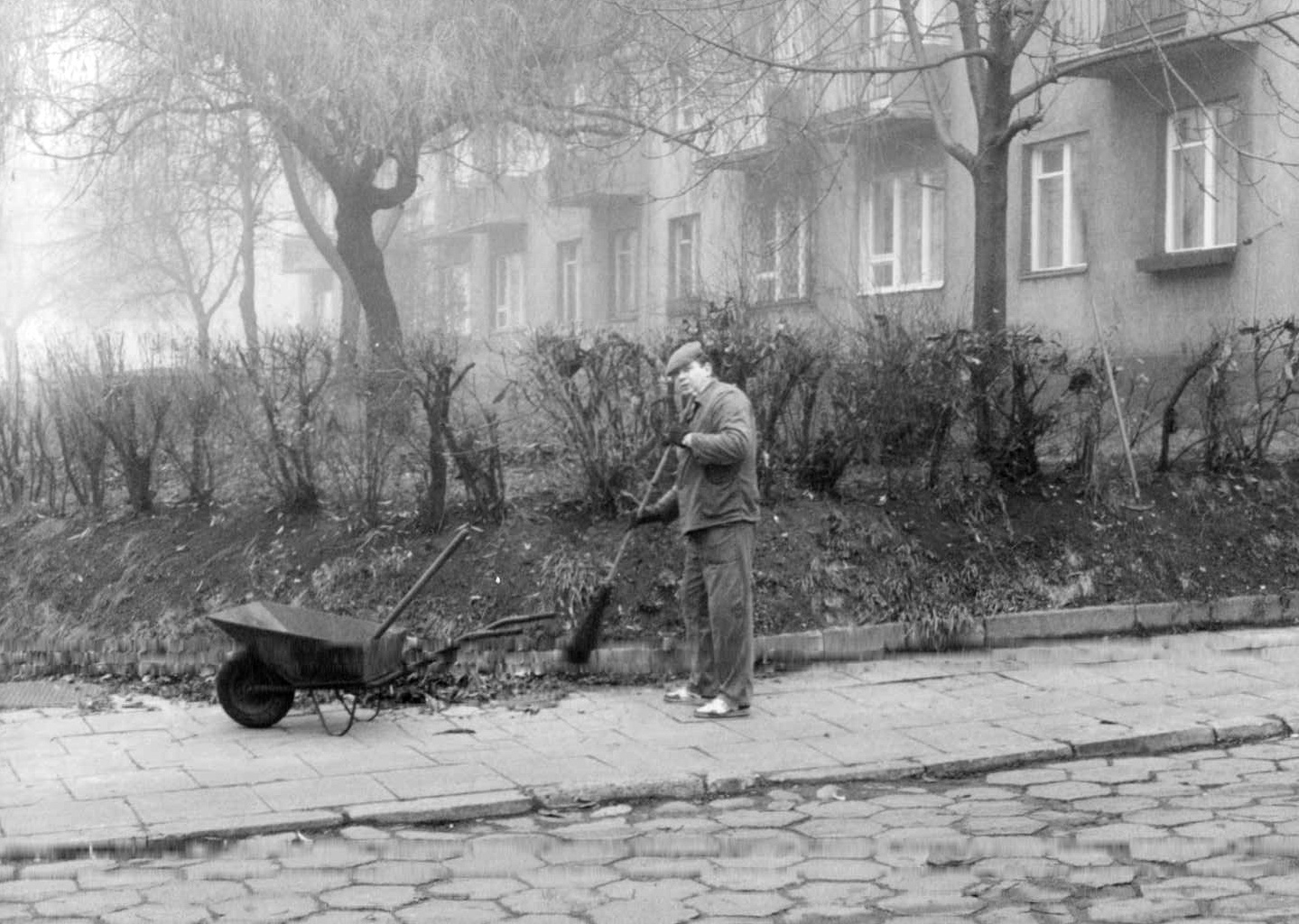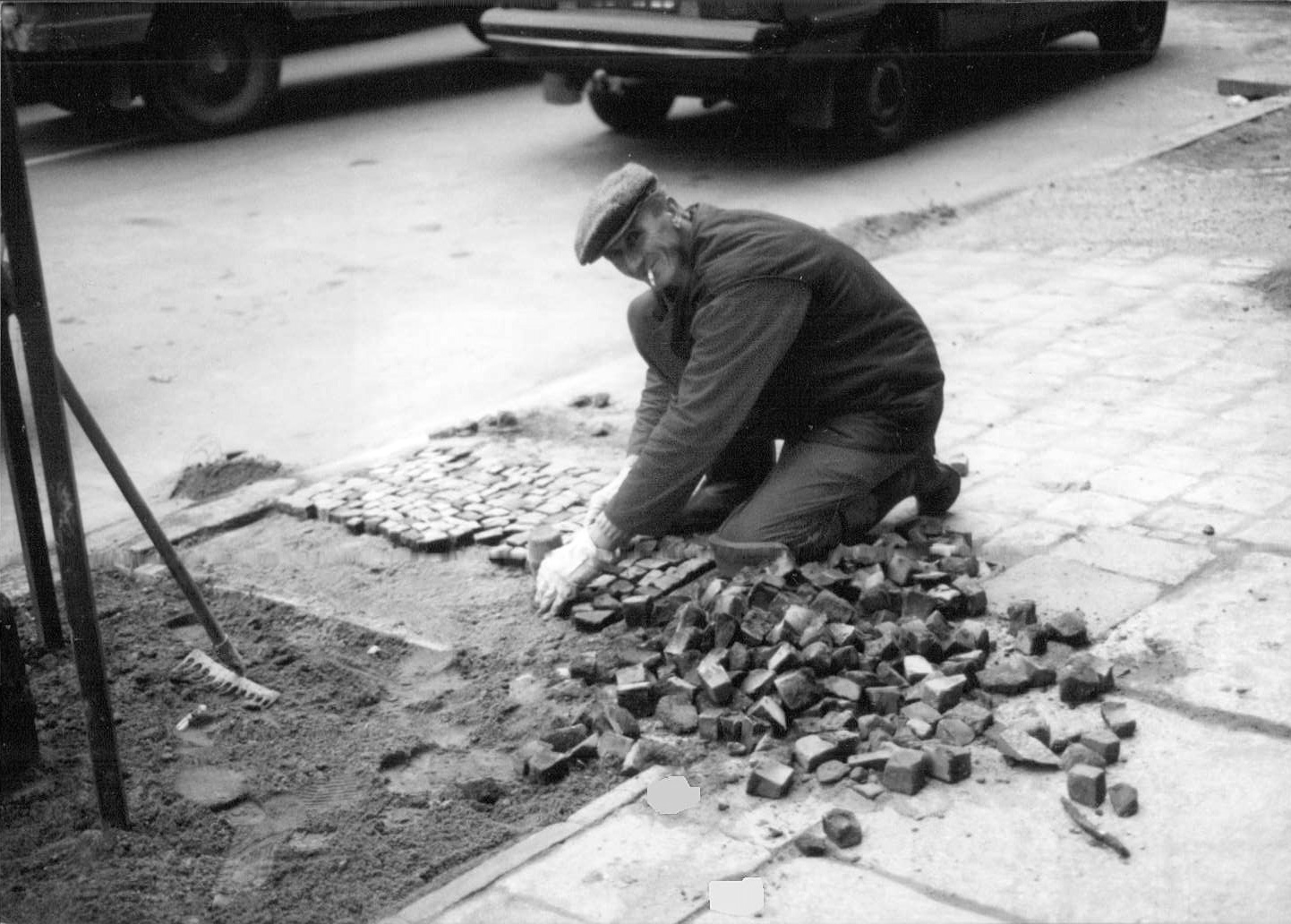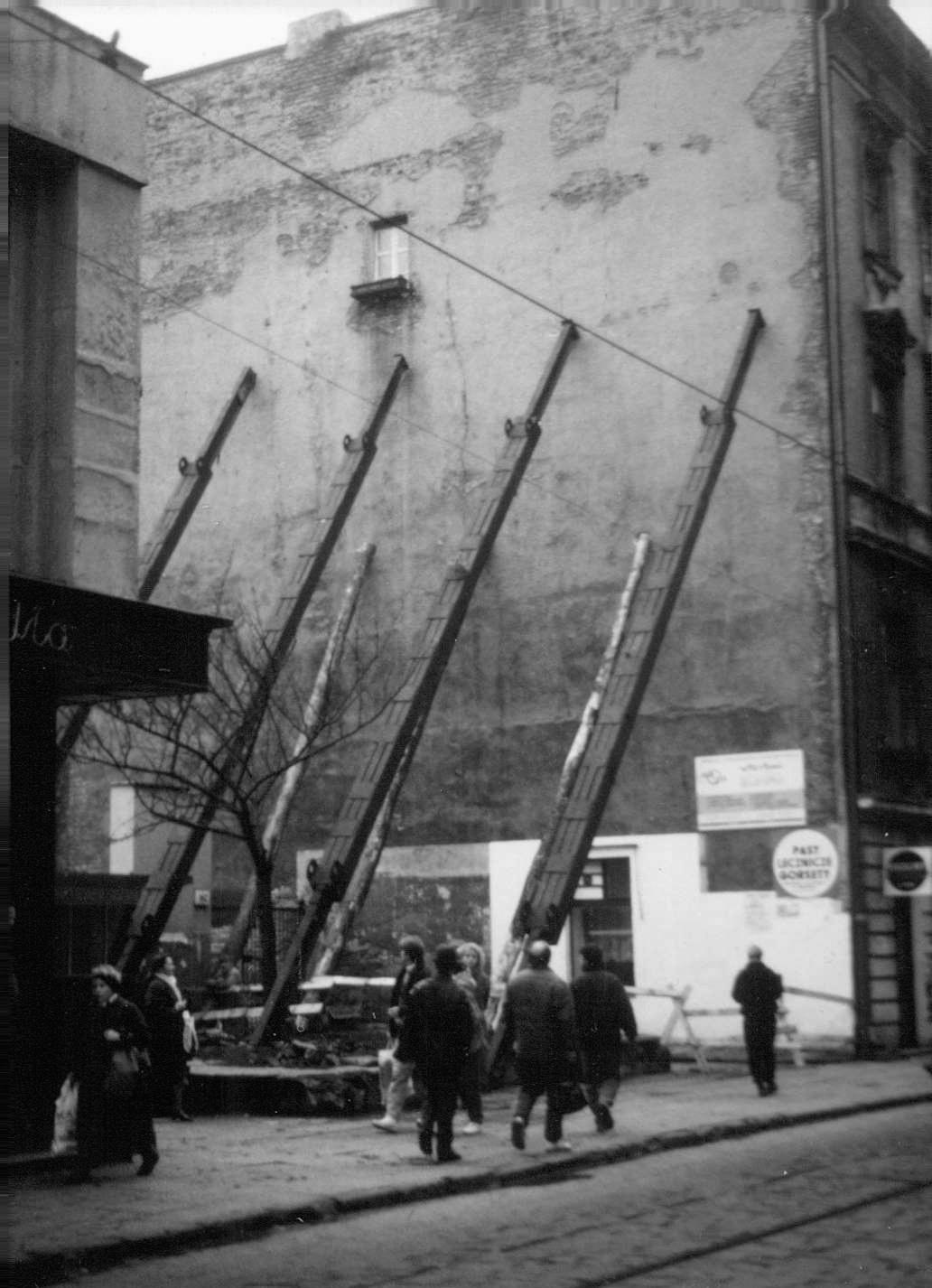They are an early-to-bed-early-to-rise lot, already busily at work when I catch the 7:30 bus to the Institute, and usually finished their work—or nowhere to be seen—by early afternoon. I doubt they are paid much (when my students complain of Polish “workers” being paid more than doctors and intellectuals, they mean shipyard workers and coal miners), and their labor has no social prestige. They seem to be a dwindling number in the New Poland, as local government finds itself squeezed for revenue, confronting escalating prices and increased demands for service. But, welcome to western capitalism, the poorest paid and the least prestigious jobs are among the most useful. Poland is one of the neatest countries you’d care to ever visit. It’s not Germany, admittedly, where women still scrub the street in front of their house each morning, but it’s not Amsterdam or New York either, full of litter and dog droppings. Or London either, a tidy town two decades ago, gone to garbage lately. Polish buildings may be tan-and-gray drab, chipped and crumbling, but you’ll not see much litter in the streets of Łódź. And for that I thank the street workers.
You see them mostly in the morning, as I said, the men in their blue or gray uniforms or sometimes in just street clothes, the women in skirt and sweater and bandana, with shovels and pushcarts and brooms, hard at work keeping Łódź beautiful. On the streets, in the parks, on sidewalks and plazas, at the museums and monuments, trimming, sweeping, hauling, dumping.
Three times during one two-hour wait in front of the Gdańsk train station I watched a worker sweep up cigarette butts, litter, cherry pits, and dirt from around the bench on which I sat. In Malbork I saw a small battalion of women sweeping leaves from the cobblestone courtyard. The road to our flat and the waiting area at the local bus stop are swept every morning of every day of the year by our local street sweeper, who is as conscientious a person as ever I met.
In fact, she’s a maniac about sweeping. With her twig broom—the same style of broom used by Paris streetworkers years ago to guide trash into the gutter and down the sewer and off, I suppose, to the Seine, this before the Paris streetworkers got themselves proper modern brooms, plastic bristles molded to resemble the old wooden twigs, no less—with her broom, this woman sweeps dirt from sidewalks and leaves from the street, discarded bus tickets from the curb, grass from the edge of the sidewalk. When the weeping willow weeps, she sweeps wept willow from the walk and from the dirt below the tree. She sweeps around the apartment buildings, ours and the neighboring blok. When she’s done sweeping, she tends the rather substantial gardens beside both buildings, trimming, planting, cultivating, weeding, coaxing into blossom a whole spring, summer and fall of color, including pansies and hollyhocks, my personal favorites, and roses, the staple of Polish gardens everywhere. I had intended to bring her some nice Western tool—pruning shears, hedge clippers, a rake—from the States our second year in Poland, but of course I forgot. More than once I have felt the urge to drop say 100,000 złotych in her hand as a reward for a job well done. I think that would be a nice gesture, for people to reward public employees doing especially conscientious jobs, although it might be misinterpreted in Poland, and it might set a bad precedent. Possibly it would offend her: she takes obvious pride in her labor, the integrity of which payment might impugn. Maybe the best gift is a smile and a thank-you, although maybe I’m letting myself off easy.
This woman is not alone in her nearly Germanic thoroughness. They’re all out in the early morning, doing the necessary work. Even around the garbage dumpsters, although trash-picking poor are increasingly common, you won’t find a lot of trash on the streets of Łódź. Not around the public buildings, not along the shopping district streets. Public markets are a holy mess each Saturday evening, but come Monday it’s all gone somewhere.
Man, can I respect tidiness!
Spring it’s fallen blossoms; summer it’s twigs; autumn it’s leaves. Winter is the major problems in this low-technology country. Snow removal, for example, is mostly by hand. Light snow is swept away with the twig brooms used on grass clippings and leaves. Heavier snow is shoveled with large squares of plywood nailed to machined wooden handles—they resemble the placards waved at American political conventions or demonstrations, two feet by two feet. They’re effective snow shovels, I guess, but lack shape and of course toughness at the edge, which is quickly shredded by the cement walk. Gradually the plywood erodes from two feet to a foot and a half, to a foot, edge irregular, not lifting as much as it once did with each pitch of the shovel, increasingly ineffective at chipping packed and caked snow on heavily trodden walks. Get it early, or the getting gets tough.
Especially snow becomes a problem after a period of thaw and freezing. I’ve seen streetworkers in Łódź banging away at ice with their plywood shovels and with steel bars similar to the one my father uses to break shale in the hills of western Virginia before planting a bush or a tree: steel rods with no particular ice-chipping end, not the tools you buy at Hardware Hank specifically designed for ice removal. Bit by bit, however, workers clear whole walks, piling ice in heaps, before hauling it off in carts or wheelbarrows. It’s cold, tedious, unpleasant work, but gradually the job gets done.
Carts are used by streetworkers for hauling more than litter and chipped ice. I see them frequently in downtown Łódź, pushed down the middle of Piotrkowska or Kościuszki by older men and even women, loaded with paper and cardboard collected at the larger stores and headed for some centralized recycling centers. Whether or not the cardboard recycled justifies that tremendous amount of human energy involved in this particular recycling process, it’s good to see natural resources conserved, and it’s good to see people at work.
Again the impulse to walk up and hand somebody a 100,000-złotych note, and again the fear of patronizing them. One afternoon I did insist on helping an especially older woman with a very tall load of cardboard, pushing her cart several blocks down Kościuszki from Central Store to a collection center. In retrospect, I’m not sure whether I helped or insulted her. She was certainly surprised, as were folks at the recycling point.
I don’t know whether any social disesteem attaches to these jobs, whether they are assignments one got by crossing Party ideologues, or failing college entrance exams, or being fired from too many other jobs, or being stupid or drunk or useless or inept . . . but I empathize strongly with the street workers. I collected garbage one summer during my college years, and I’ve also worked cleaning streets and parks. I know it’s a tough, ill-paid life. These people work harder, under more uncomfortable conditions, at greater risk to their health, than the bureaucrats and the service industry people, and they seem considerably more conscientious. This is certainly not the kind of job most of my students would ever dream of taking, at least not in Poland, although a season or two on the streets would do them good. Maybe it would do me good too: put in some socially useful work for a change, quit talking, forget the insubstantial and inconsequential student essays and conference papers, get off the typewriter and on the shovel. I’m all for intellectuals putting in a few weeks in the potato and rice fields.
I might even one day deliver a lecture at the Institute dressed in the blue or gray uniform of a Polish street worker, offering if not an example, a statement: “Street workers do a good job with minimal equipment, and their work contributes much to the charm of an otherwise bleak landscape. Can you say the same about yourself?”


